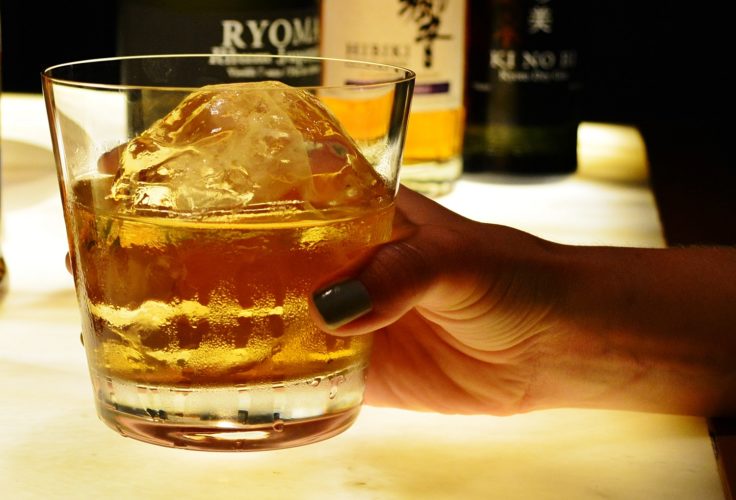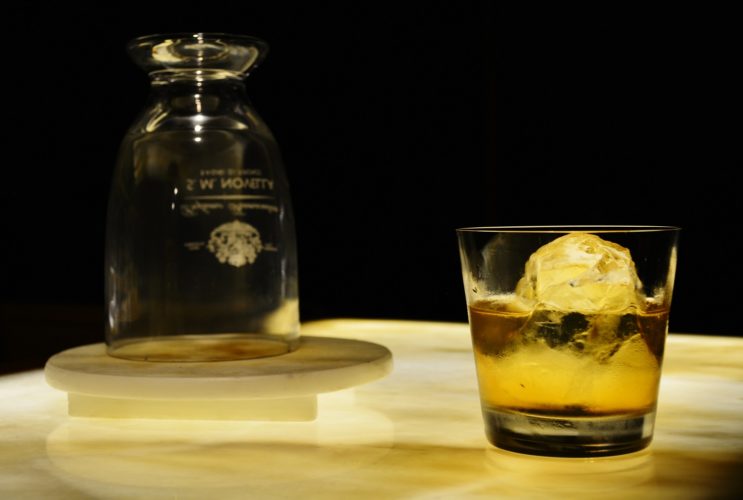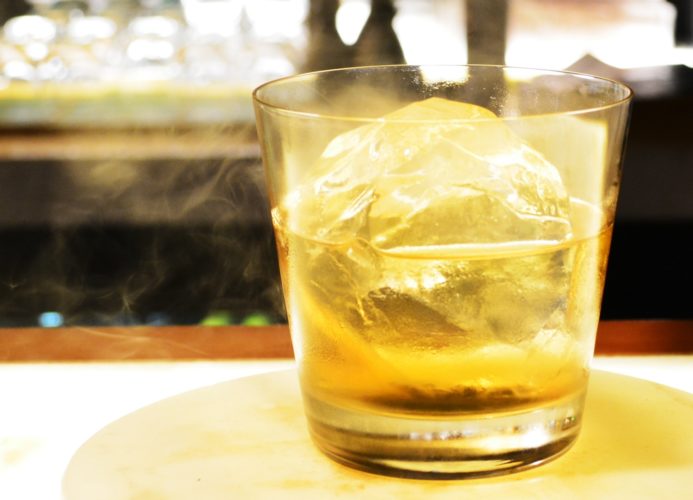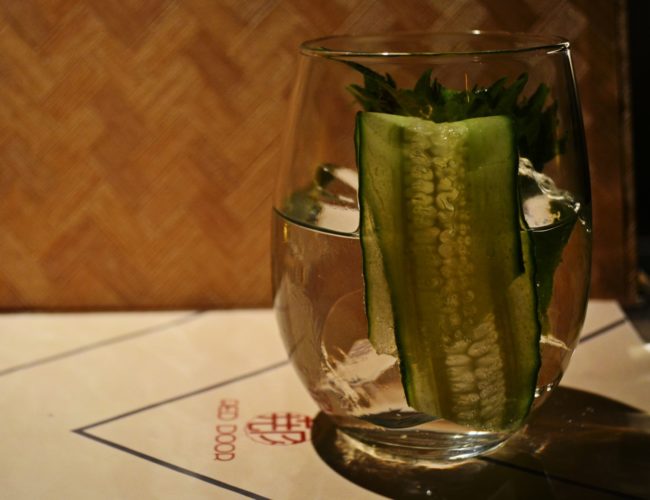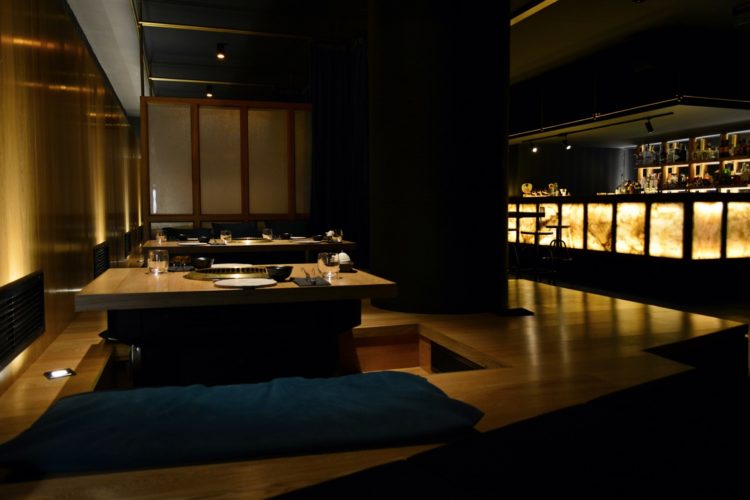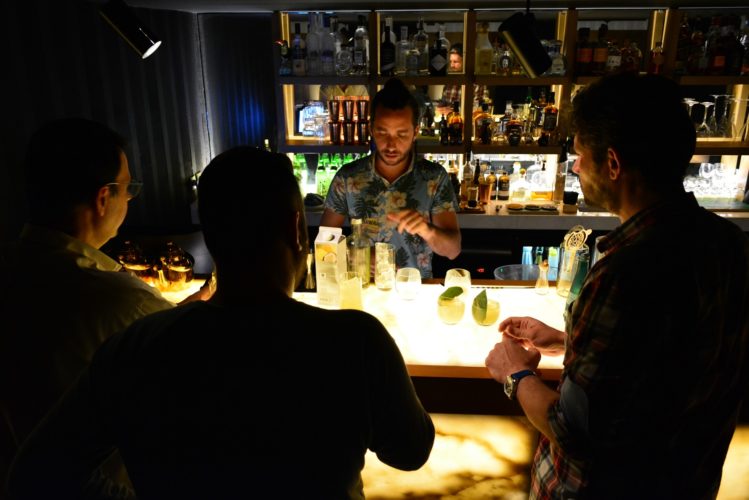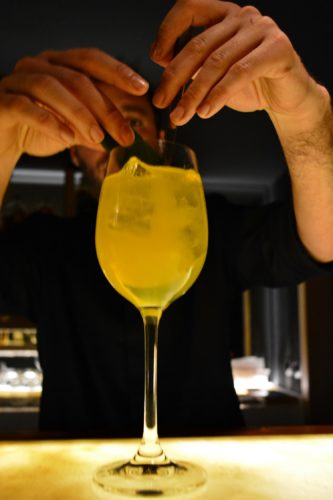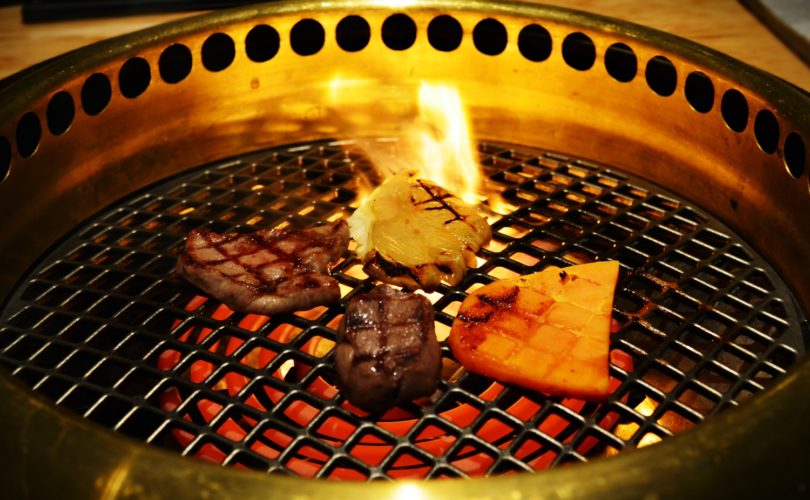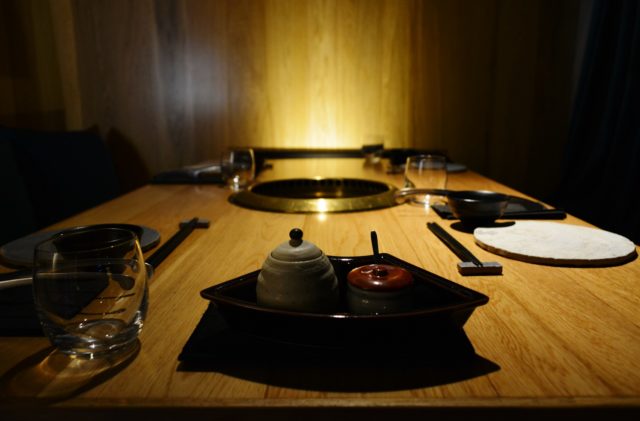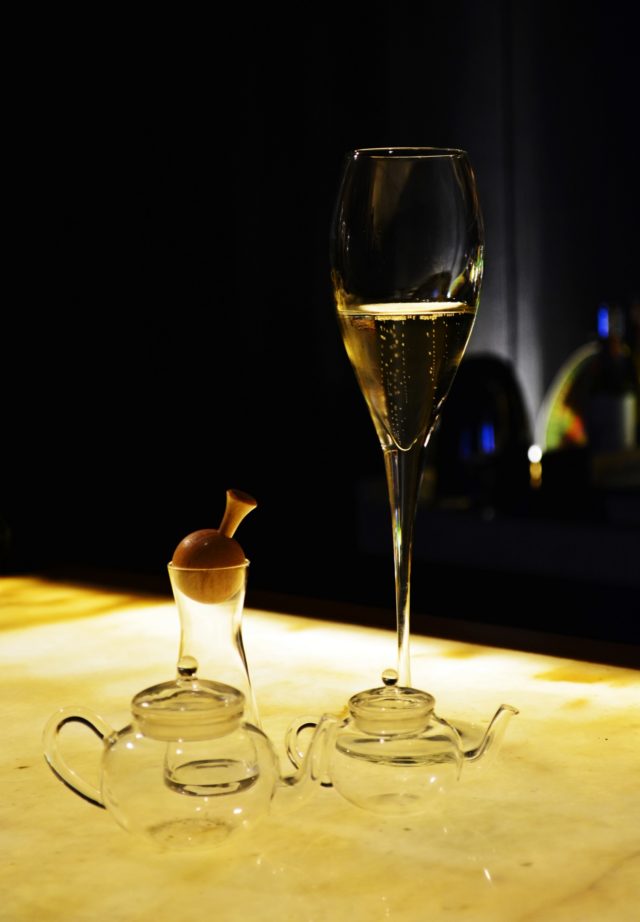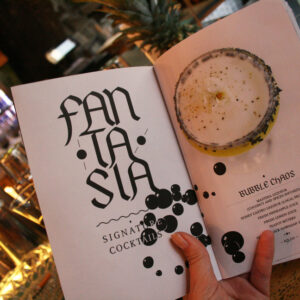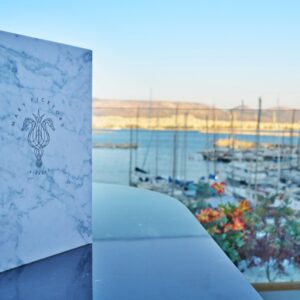Red Door – Bringing Japanese bartending home
Paulina Björk Kapsalis•Athens Makes Merry, Uncategorized
I can’t very well describe Japanese bartending as a new trend, seeing how famous the style is and that it has been inspiring western bartenders for years already. However, while certain aspects of the style are being imitated (the attention given to ice, ice sculpting and hard shaking), a lot of it seems to have been left for the experts to discuss, and for no one to experience. The reason is probably as simple as the fact that it’s impractical. The Japanese cocktail just takes too long to make.
Then there is the competition side of it. The clean and pure flavor and style, versus the big, bright, fun, extravaganza that is the tiki trend. They both come with eye candy and a show, but which side is more approachable?
While most western world bartenders are still striving to be seen as serious professionals; placed alongside chefs rather than people who got stuck with their summer jobs, Japanese bartending is often compared to an art form; a dance, classical music, or origami, and those who practice it are seen as artists. Or at least that’s their goal. They learn, teach, and work with the same discipline as those performing the traditional tea ceremony. While there are exceptions to the rule, with western influences affecting some, the Japanese is generally an orthodox bartending style. The master teaches the apprentice, and recipes are passed down and perfected rather than updated – and so it has been so for many decades.
In Japan, I’m told, good cocktail bars are small. That’s really small, as in sometimes with room for just five guests. If larger, there are as many bartenders as needed for them to serve just a handful of guests each. A necessary “evil”, as the precision and extreme attention to detail that goes into the mixing of each elegant drink is so time consuming, a party of two may not enjoy their drinks at the same time, but should instead be mesmerized enough by the bartender’s grace that they don’t mind. Needless to say, this is not a concept that’s easy to copy in a country where bars are usually large, and guests have adjusted to a noisy and fast paced drinking environment.
A Japanese Red Door to happiness
Now imagine this scene: two Greeks, a chef and a bartender, randomly bump into each other on the street in Tokyo’s upscale Ginza district. They are old acquaintances, and they’re in Tokyo on similar missions of gathering knowledge and inspiration in their respective fields. If this happened in a movie, you’d know where it was going.
Red Door opened in December 2016. Christos Sourligas (chef and owner) and Giannis Petros Petris (head bartender) have both studied their craft in Japan, and had now found a way to bring the Japanese style home. Or, well, Sourligas is already the owner of the Greek sushi restaurant chain “Koi”, but this is something else entirely. “I had acquired this space in Kolonaki, and was unsure of what to do with it,” Skourligas recalls when we meet. “Talking to Giannis in Tokyo, the image of Red Door took form.”
It’s a seducing image. The basement space is softly lit, colors and materials are plush, and the raised wooden platform running throughout the space on which the dinner tables are, is intriguing. You do take your shoes off, but don’t worry if you’re behind on your yoga training; there is no need to sit in some awkward sukhasana pose. The tables actually stand on the floor, and there is space for your legs beneath. It does look like a Japanese restaurant in a movie, but as Sourligas explains: “We’ve adjusted the experience to suit the Greeks.”
He orders food while we wait for Petris. Amazing cuts of meat and veggies which we grill yakiniku style and try with all of the sauces on the menu. It’s incredible. I almost forget why I’m there, until Petris shows up, and immediately picks up where Sourligas left off, explaining how they’ve made the concept work in Greece.
“After losing World War II, Americans arrived in Yokohama and opened the first modern bars” he says. Those are the bars that now inspire the rest of the world. In other words, it’s not like the western bars are attempting to copy a craft that the Japanese invented a thousand years ago, and nothing says they can’t play with the concept. “We have created a menu for Athenians –for Europeans– but we work with Japanese flavors.”
Yuzu; the Japanese citrus fruit that falls somewhere between a lemon and a lime, shiso; the leafy green with a peppery mint flavor that’s often used in sushi, and plum, are some of the flavors playing key parts on the Red Door cocktail list. The spirits are Japanese as well. Yuzu liqueur and sake, sparkling sake, Ryoma Japanese rum, Nikka and Hibiki whiskey and Ki No Bi gin.
“Englishmen brought gin to Spain, and the Spanish started making gin and tonics with various additional flavorings. Now we have four gin and tonics with Japanese gins and Japanese aromas on our menu.” He makes us one with shiso, cucumber and German Thomas Henry premium tonic. “Cucumber is very common in Japanese cocktails,” he explains, “but it’s also a very easy ingredient for the Greeks to accept, thanks to the marketing by Hendrick’s and the fact that it’s a common vegetable.”
But there are other particularly obvious Japanese touches, aside from the ingredients. When Petris makes a drink, the ingredients come up on the bar in front of us. This is a typical way of presenting a cocktail in Japan. The ice is another thing. I’ve never seen such clear ice in my life.
“The tiki trend is the easy route,” Petris says, “Greece has great exotic fruits which everyone loves”. “Here, we have to impress our guests with something much simpler. Quality in everything. We do get great response because we present clean flavors. They’re not confusing. We use the best quality ice and the best quality tonic… We add some fresh cucumber and shiso and serve in a really nice glass.”
The next drink we’re served, the “BBQ old fashioned”, is on the one hand given some extra flair as Petris smokes it in front of us, and serves it in a giant rocks glass, but the flavor is just as pure and clean. I try some sparkling sake, and then the “Tokyo Spritz”, which has yuzu sake, sparkling sake, and premium mango soda. It’s fresh and sweet in flavor, like a grown up Popsicle, and luxurious looking with ice that lures and cheats the eye. Is it really there?
When Petris is not behind the bar at Red Door, he teaches his craft to others, organizing trips to Tokyo with groups of Greek bartenders. Hopefully, many more will return inspired. Japanese bartending is not a new trend, but it might just be that the Red Door team has managed to finally really introduce the trend in Athens.
Adress: Tsakalof 6, Kolonaki
Phone no: 210 364 7712
Credit cards: Yes
Open hours: 1:00PM – 3:00AM
Photos by Nota Nikolaidi



